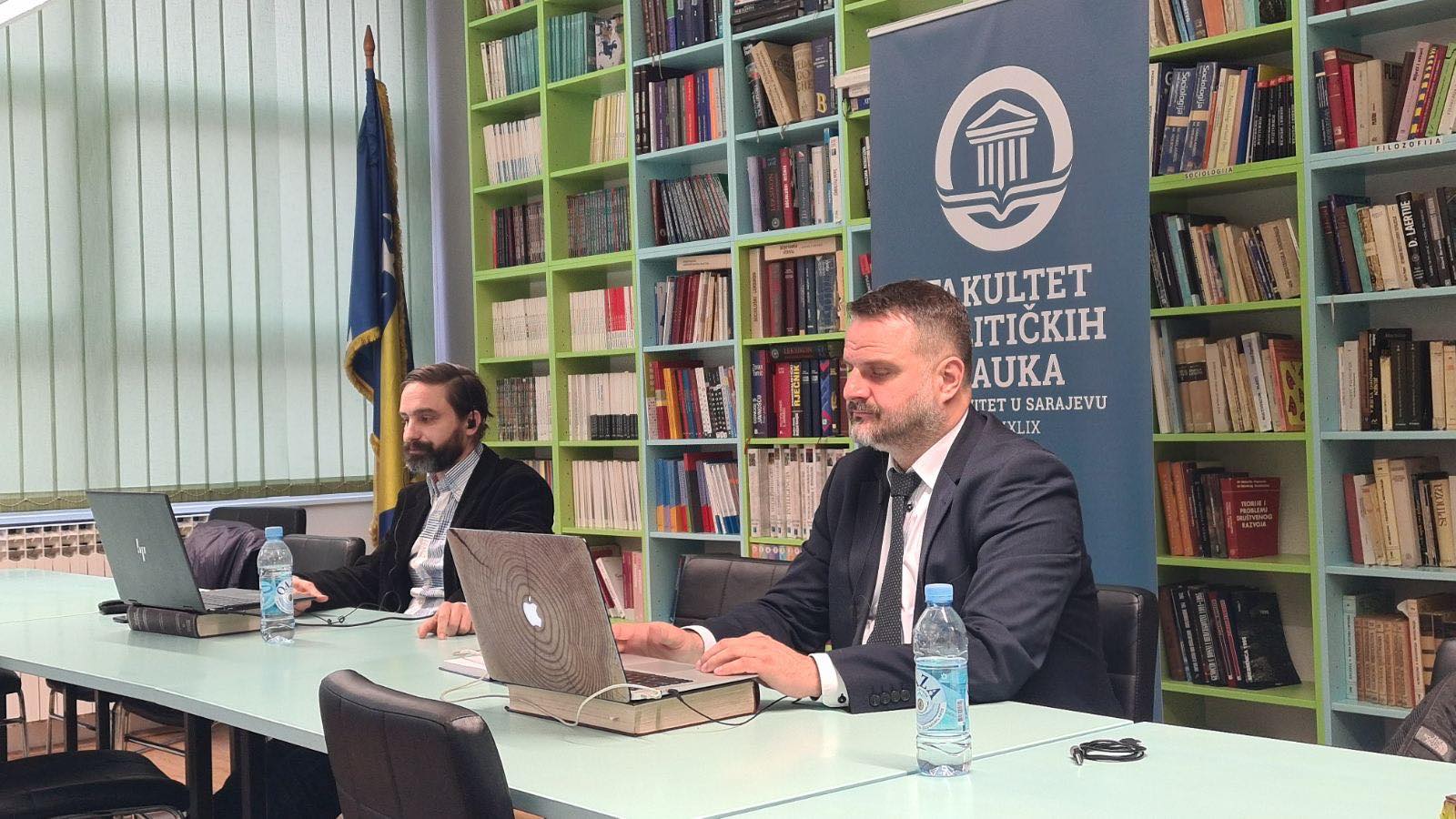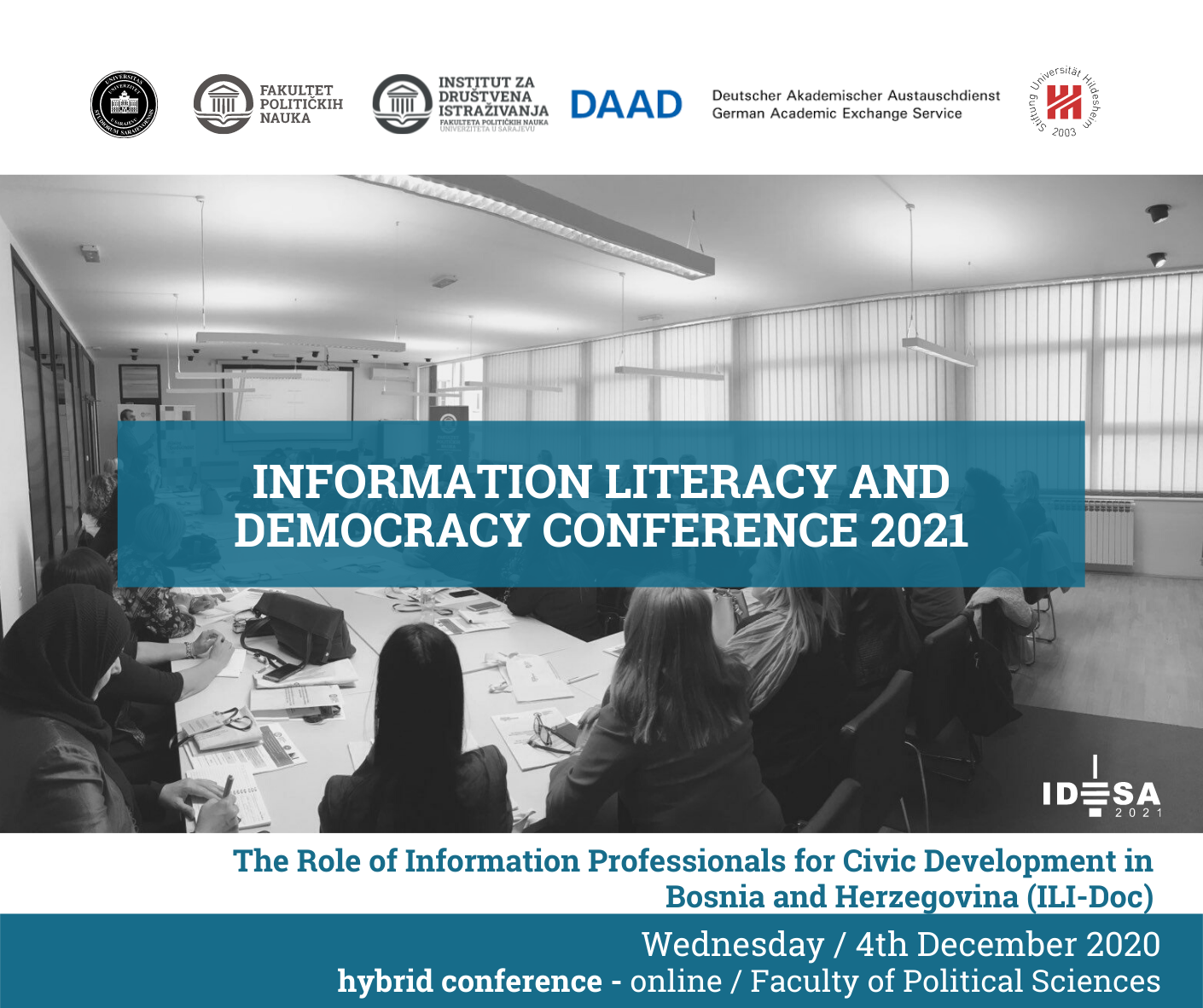In the online IDESA Conference on 4th December 2020, we want to highlight various aspects of information and media literacy with particular emphasis on the role of information professional for civic development in Bosnia and Herzegovina.
Despite the increasing development of new technologies and the growing role played by media in society, there is no adequate government action nor public discussion in Bosnia and Herzegovina on issues related to media and information literacy as basic requirement for civil discourse and consequently for democratic processes.
In the education sector, insufficient negligible attention is dedicated to the development of MIL skills in curricula. Teachers do not have adequate skills in the area of MIL education nor the possibility to access quality teachers’ training. However, there are several examples of a new approach to education that show that changes in perceptions occur. This conference should serve as capacity building forum for educators, information professionals, students etc. especially those who are focused on current curricular reforms at all levels of governance but also a broad user communities interested in transferring MIL knowledge and skills.
Free press, access to information and trust in media is what makes democracy stable and functioning. Consequences of current destabilization of democracy, labelled post-democracy (Stalder, 2018), “dramatically widening the distance between technical systems and social organization as if, negotiation between them appearing to be impossible, their final divorce seem inevitable” (Stiegler 2009, p. 3). Understanding of the digital condition prior the rising focus to our digital competencies as well as upgrading abilities to navigate information and media landscape (without succumbing to the pitfalls of networked manipulation) is usually seen as the multi-faceted skill set indispensable for netizens to actively shape their lives. Being the grand design of technological mind Internet as the “architecture of innovation” (Lessig, 2002) should be continually discussed especially in terms of accelerated development and transformation of digital learning in which information professionals dwell. In other words, “we need to design for freedom, a freedom that actively undermines the technological pressures to lead a predictable life” (Lovink 2019, p. 40).


